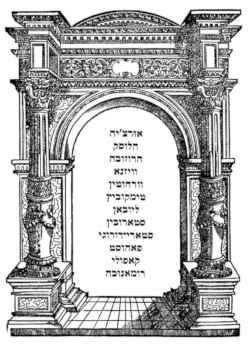 |
|
|
[Page 183]
|
[Page 184]
[Page 185]
52°57' 27°54'
by Nachum Chinitz
Translated by Yocheved Klausner
The little town of Urecz was located at a distance of some 25 km. from Slutsk, on both sides of the main road and the dirt road that stretched from Slutsk to Bobroisk. The houses were made of wood and some of them were covered with straw. Over 200 families lived there and most of the residents were shop owners, laborers and Jewish peddlers, who walked through the towns in the neighborhood and sold everything. Most of the merchandise was flour, leather, flax, petrol, herring and the like.
The connection between Slutsk and Bobroisk was maintained by the local wagon owners, who provided the town and surroundings with all that was needed, including letters, newspapers, books and religious objects. The rabbi of the town was an old and modest man, R'Avraham Aharon Peshin. There was in town a Bet Midrash, several Minyanim [minyan = prayer quorum of at least 10 people] and several Hadarim [religious Torah teaching class for little children].
|
|
| The rabbi R'Avraham Aharon Peshin |
In town there were also some “enlightened” and Zionist Jews, like Avraham Baruch Epstein, the teacher Leibowitz who lived in Bobroisk but came at times to his birth-town and brought with him light. When the railroad was continued to Urecz and, during WWI to Slutsk, the town revived. A post office was opened and a new Bet Midrash was erected in the place of the old one that was burned down, near the train station and green trees. Two rows of new beautiful houses were built, forming a brand new street more than one kilometer long. A gas station, managed by the Zionst Jew Shmuel Reznik, provided fuel for the entire region.
With the new trains, a fresh new life began in town, and new faces were observed at times. Commerce bloomed, Hebrew, Yiddish and Russian newspapers were on sale, a bookstore was opened. When the old rabbi died, there was a conflict in town concerning the election of a new rabbi. The town was divided in two: The simple folk and the workers elected the young rabbi Appelman, who excited them with his simple sermons and the Intelligentsia including the wealthy (lit. house-owners) elected Rabbi Ben-Zion Zwik, a respected man of an imposing appearance. The conflict reached such a stage, that the wagon owners and their followers poured petrol on the flour sacks of the merchant Epstein, one of the followers of Rabbi Zwik. But finally all simmered down and the town had two rabbis, both living a life of poverty and stress.
Yet, a new spirit spread in town and a “modern Heder” opened, in Hebrew. The respected teacher Glinik, who had come from Eretz Israel, won the hearts of the parents and they sent their children to the two classes of the new Heder. The second teacher was Elta (Sara) Assaf (the sister of Prof. Assaf z”l). The rich man in town, Dobrobovski, also opened a new Heder for the children of his own family and other rich families in town. He hired a young teacher by the name of Gurewitz.
With his help, and by the management of Mechl Reznik, a “Hebrew” man and an enthusiastic Zionist, a Zionist Association was founded. Lectures were given on various subjects, and sermons on subjects of Eretz Israel were heard in the synagogues. Yet there were also Bundists and others who disturbed the activities, but the general Jewish public did not listen to them. On the eve of Yom Kippur, collection bowls of the “Odessa Committee” were placed in the synagogues, Zionist stamps were sold and Zionist assemblies were held on the Balfour Declaration day or 20 Tamuz, Herzl's Memorial Day. A “literary circle” also existed where lectures on literary subjects were given.
As the regime changed, all this Hebrew and Zionist activity stopped. When the Poles retreated from the town, it was set on fire and it almost entirely burned down. When Hitler's soldiers appeared, the Jews in town met the fate of their brothers everywhere, and only very few managed to reach a safe shore.
|
|
JewishGen, Inc. makes no representations regarding the accuracy of
the translation. The reader may wish to refer to the original material
for verification.
JewishGen is not responsible for inaccuracies or omissions in the original work and cannot rewrite or edit the text to correct inaccuracies and/or omissions.
Our mission is to produce a translation of the original work and we cannot verify the accuracy of statements or alter facts cited.
 Slutsk, Belarus
Slutsk, Belarus
 Yizkor Book Project
Yizkor Book Project
 JewishGen Home Page
JewishGen Home Page
Copyright © 1999-2025 by JewishGen, Inc.
Updated 31 May 2024 by LA